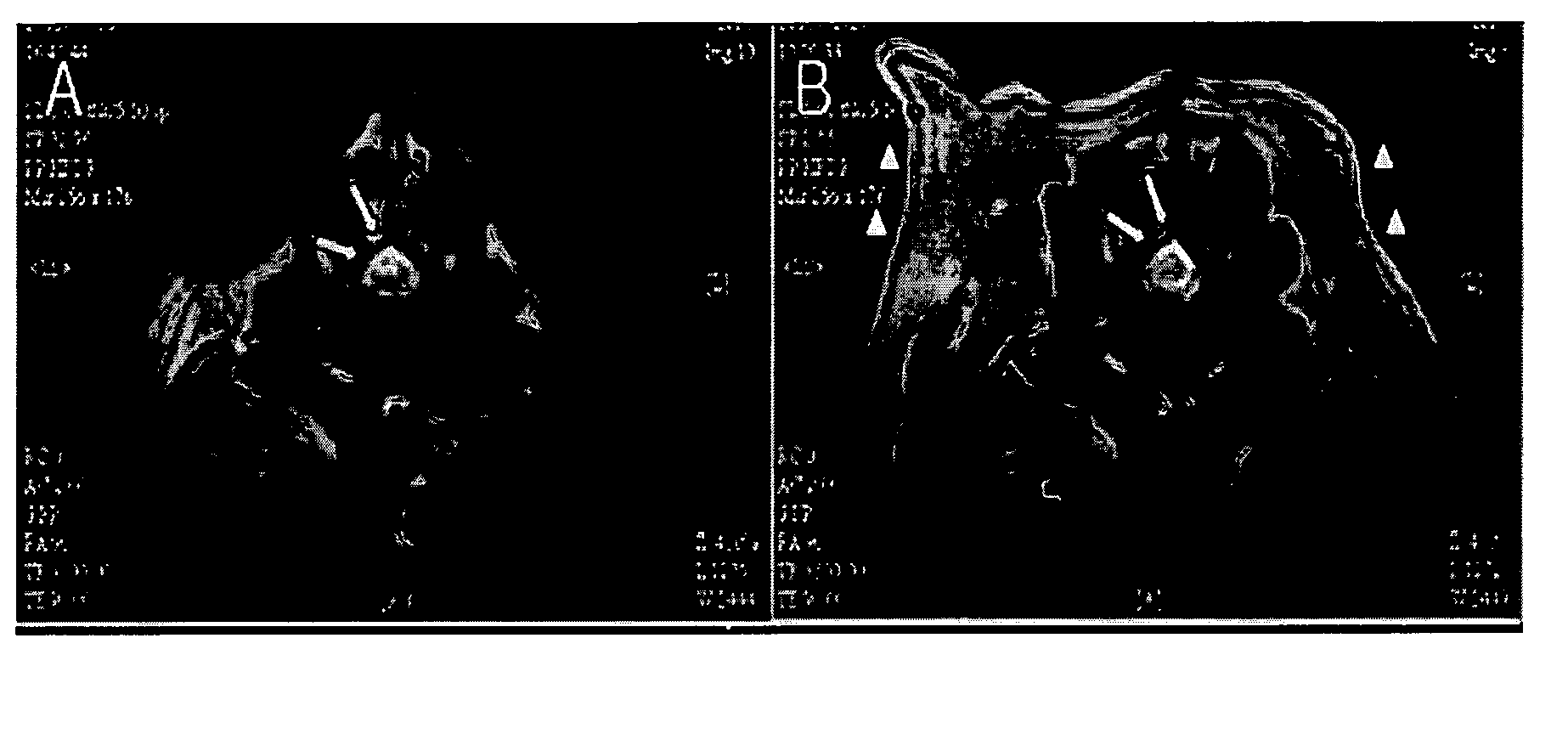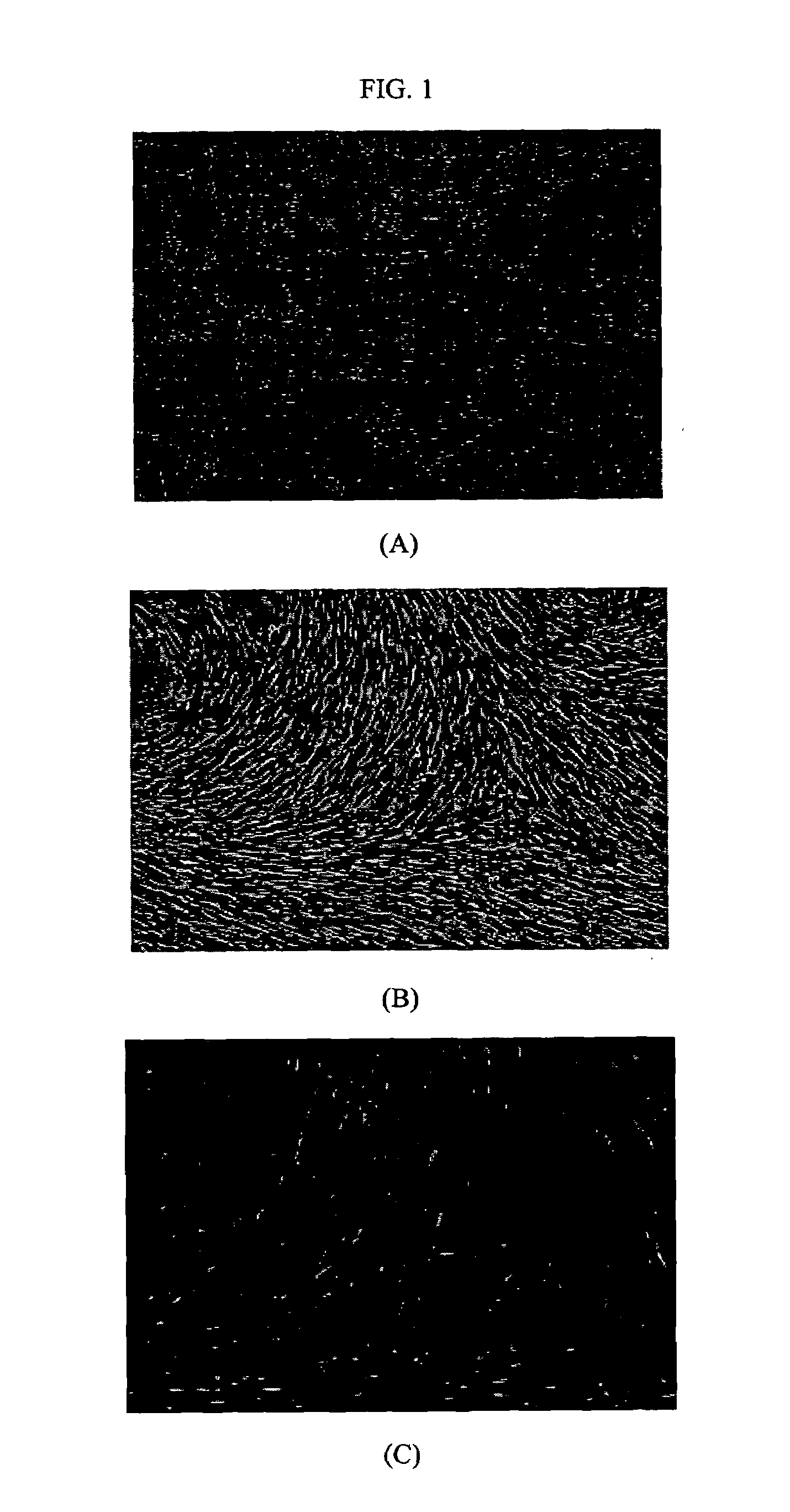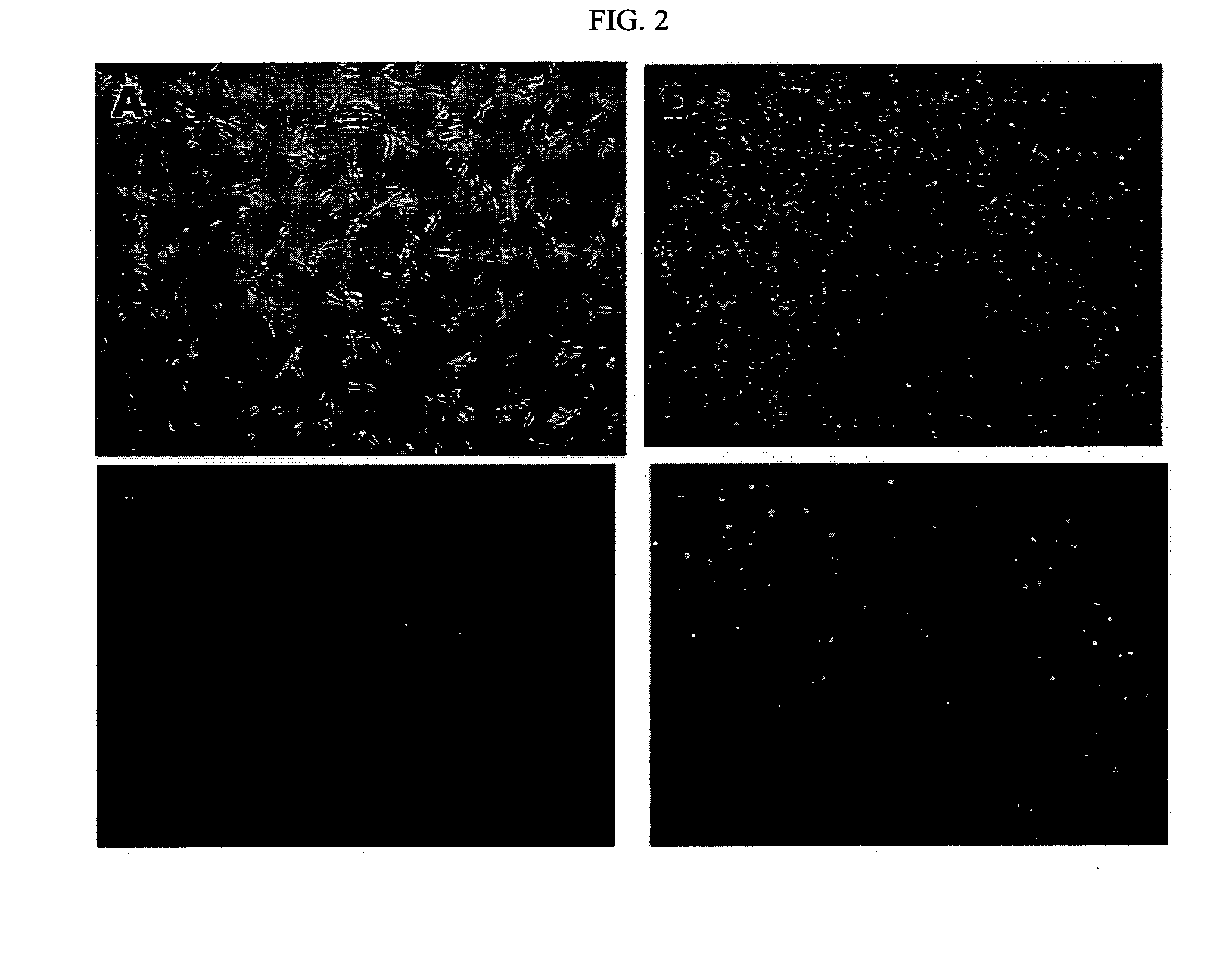Multipotent adult stem cell derived from canine umbilical cord blood, placenta and canine fetus heart, method for preparing the same and cellular therapeutics containing the same
a multi-potent adult stem cell, placenta technology, applied in the direction of non-embryonic pluripotent stem cells, biochemical apparatus and processes, biocide, etc., can solve the problems of unavoidably limited use of cells for analysis and differentiation experiments, and achieve the effect of remarkable cell growth
- Summary
- Abstract
- Description
- Claims
- Application Information
AI Technical Summary
Benefits of technology
Problems solved by technology
Method used
Image
Examples
example 1
Isolation of Adult Stem Cells from Canine Umbilical Cord Blood (UCB) and Blood Sample from Canine Fetal Heart (FH) and the Culture Thereof
[0045]Canine umbilical cord blood and blood sample collected from canine fetal heart were diluted in PBS at a ratio of 1:1 to stir. Then, blood sample was laid over Ficoll-Pague at a ratio of 15:25 (Ficoll-Pague: Canine umbilical cord blood). the blood sample diluted in PBS at a ratio of 1:1 was spilled smoothly onto 15 ml of ficoll solution to cause layer separation, followed by centrifugation at 1500˜3500 rpm for 5˜30 minutes. After the centrifugation, thin buffy coat layer in the middle layer of a tube was formed and was transferred to a new tube using a micropipette. HBSS was added to the tube to make a tube containing 30 mL of solution, followed by centrifugation at 1500˜3000 rpm for 5˜20 minutes, from which the supernatant was completely removed and the precipitation solution was kept immediately on ice.
[0046]After adding 1 mL of HBSS to the...
example 2
Immunological Characteristics of Multipotent Adult Stem Cells Derived from Canine Umbilical Cord Blood and Blood Sample from Canine Fetal Heart
[0049]The expression pattern of cell surface antigens was examined to determine immunological characteristics of multipotent adult stem cells prepared in Example 1.
[0050]P0 cells were collected after the primary culture and seeded into a new T-75 flask to culture P1 cells. The collected P1 cells were bound to primary antibodies against CD34, MHC Class I, CD44, CD90, CD14, CD45, CD3, CD4, CD8, CD172a, CD11c, HLA-DR and then were bound to fluorescent-labeled antibodies to carry out FACS analysis using indirect immunological labeling. As a result, adult stem cells according to the present invention showed the following immunological characteristics.
TABLE 1AntibodyCanine MSC from umbilical cord (%)CD3429.48MHC class 159.77CD4489.81CD9025.46CD140CD450CD30CD40CD80CD172a0CD11c0HLA-DR0
example 3
Differentiation of Multipotent Adult Stem Cells Derived from Canine Umbilical Cord Blood and Blood Sample from Canine Fetal Heart into Osteogenic Cells
(1) In Vitro Test
[0051]Multipotent adult stem cells derived from canine umbilical cord blood and blood sample from canine fetal heart, obtained in Example 1 were cultured for 30 days in an osteogenic induction medium containing 10% FBS, 10 mM β-glycerophosphate, 0.1 μM dexamethasone (Sigma-Aldrich), and 50 μM ascorbate. Osteogenic differentiation was measured by calcium mineralization. For Alizarian red S staining, the cells were washed twice with distilled water and fixed with 70% ice-cold solution for 1 hour. After carefully washing 7 times with distilled water and 2 times with distilled water at an ambient temperature, the cells were stained with 40 mM Alizarin Red S for 10 minutes.
[0052]5-times subcultured cells were maintained in an osteogenic induction medium so as to differentiate into osteocytes. The morphology of cells was ch...
PUM
 Login to View More
Login to View More Abstract
Description
Claims
Application Information
 Login to View More
Login to View More - R&D
- Intellectual Property
- Life Sciences
- Materials
- Tech Scout
- Unparalleled Data Quality
- Higher Quality Content
- 60% Fewer Hallucinations
Browse by: Latest US Patents, China's latest patents, Technical Efficacy Thesaurus, Application Domain, Technology Topic, Popular Technical Reports.
© 2025 PatSnap. All rights reserved.Legal|Privacy policy|Modern Slavery Act Transparency Statement|Sitemap|About US| Contact US: help@patsnap.com



